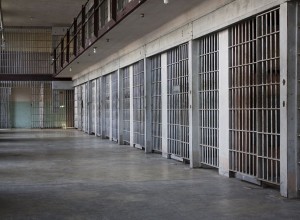Rules Are for Schmucks: Should Religious Privilege Extend to Prisoners?
 Photo by txking / 123RF
Photo by txking / 123RF Last spring I described how even the dissent in the Town of Greece v. Galloway Supreme Court case approving sectarian prayer at official government meetings left much to be desired. It seemed that every single justice was firmly in favor of government promotion of religion, with the only differences among them being how much blandness is required. When even the principal dissenter went out of her way to solemnly intone that “We are a religious people,” the future for even-handed treatment for the non-religious looked bleak.
That future is now. By all accounts, the court appears headed for a 9-0 opinion confirming special privileges for prisoners who claim to be religious.
Gregory Holt is an inmate in the Arkansas prison system. He has been convicted at various times of aggravated residential burglary, making a terroristic threat in the first degree (against President Bush’s daughters), and domestic battery in the first degree. Holt, who describes himself as an “American Taliban” and threatens “Death to America!” while writing letters praising Osama bin Laden, is now serving a life sentence for stabbing his girlfriend in the neck and chest.

Gregory Holt (via Arkansas Department of Correction)
The Arkansas prison system has a longstanding rule against prisoners wearing beards. Mr. Holt, who insists that he does not recognize American law but only the Muslim law of sharia, wants to wear a half-inch beard anyway. So he sued the state prison system under the Religious Land Use and Institutionalized Persons Act, (RLUIPA) a federal law requiring prisons to bend over backwards to accommodate prisoners’ religious beliefs. RLUIPA is similar to the Religious Freedom Restoration Act (RFRA), which requires federal agencies to change their rules when religious groups object to them (the statute on which the Hobby Lobby case was based). The difference is that RLUIPA is limited to prisons and land use cases, but it applies to states and municipalities as well as the federal government.
Holt argued that even though there might be a general prison rule against beards, there could and should be a special privilege for Muslims to be able to wear them, because making Muslims obey the same rules as everyone else is not the “least restrictive means” of furthering the state’s interest in prison safety. The federal district court disagreed, and so did a unanimous panel of the Eighth Circuit Court of Appeals. But the religious bootlickers on the Supreme Court are poised to rule that they know a lot more about running prisons than the warden in Arkansas does, or the district court, or the court of appeals, and that it’s the easiest thing in the world to let this American Taliban lord it over the rest of the prisoners that “You suckers just don’t know how to game the system.”
Running a prison has to be one of the toughest jobs in the world. Inmates hide weapons like razor blades and icepicks wherever they can, and a beard (or inside a cheek, covered by a beard) makes an ideal spot. Today’s method of choice for prison wrongdoing is the cellphone, and a SIM card is even easier to hide than a weapon. The Arkansas prison that houses Holt doesn’t put prisoners one or two to a cell, like most prisons do; they put them in barracks of fifty or so to a room, making contraband control all the more difficult. Arkansas also allows many prisoners to work on farms outside the prison walls, piling yet more pressure on the procedures to keep out contraband.
Arkansas prisons already allow numerous special privileges for Muslims. They get special food, the use of prayer rugs, time to observe Muslim holidays, and access to Muslim reading materials and chaplains. All those things could be permitted, in the view of prison officials, without much problem; allowing beards, though, in their considered judgment, creates undue complication and risk.
Justice Alito responds to these concerns by joking about prisoners hiding revolvers in their beards, prompting laughter in the normally solemn court chamber. All you have to do is have the prisoner comb his beard, he chuckled, and the revolver would fall right out.
Here’s something else Alito may find humorous. While the case is pending, Arkansas has actually been allowing Holt to wear a half-inch beard. But when he went to the prison barber for a trim, there was a heated altercation over how much the barber was cutting, with Holt telling prison staff that he was “at war” with the barber and threatening his safety if their paths ever crossed again. So now a different barber has been assigned to keep Holt happy. Alito and company can keep right on waxing eloquent about the value of religion in their little protected shells, while the prison staff who have to manage these thugs are put at greater and greater risk.
Elsewhere, Muslim prisoners charged with direct involvement in the September 11 attacks have now filed suit against the practice of being escorted from place to place by female guards. They say being touched by a woman who is not a family member is against their religion. If Holt wins his case, it’s hard to see how they could lose. All prison officials have to do is to juggle their assignment schedules so that every religious prisoner gets a guard to his or her liking, at the same time they are arranging for all the special religious grooming demands, and all the special religious meal servings, and so on. Nothing to it.
Or, we could repeal RLUIPA, and go back to a simpler time when every American could wear any kind of beard he wants, eat whatever he wants, and be touched only by those he prefers—right up until the day he gets convicted for slashing a woman’s throat, at which point all those rights evaporate.
